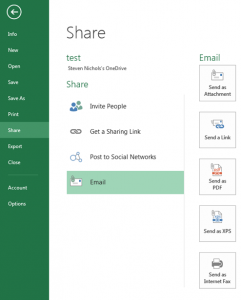
Fostering emotional intelligence (EI) is essential for creating a productive and collaborative work environment. By focusing on emotional intelligence, companies can enhance employee relationships, leadership effectiveness, and workplace culture. Here’s how to cultivate emotional intelligence in your organization:
Encourage Self-Awareness Among Employees
Self-awareness is the foundation of emotional intelligence. Encourage employees to reflect on their emotional triggers and reactions. Provide opportunities for self-assessment and feedback, which can help employees better understand their strengths and areas for improvement. Offering mindfulness programs or self-reflection exercises can also promote greater emotional insight. The more aware employees are of their emotions, the more control they have in managing stress and responding to challenging situations with a clear, level-headed approach.
- Provide regular feedback and encourage self-reflection.
- Incorporate mindfulness and emotional awareness training.
Foster Empathy in Workplace Relationships
Empathy is crucial for reducing misunderstandings, building trust, and improving team collaboration. Encourage employees to practice active listening—understanding not just the words being spoken but the emotions behind them. Offering empathy workshops or communication skills training can also help foster a deeper understanding of colleagues’ perspectives, leading to better collaboration and conflict resolution.
- Encourage active listening practices in conversations.
- Offer empathy and communication skills workshops.
Enhance Communication Skills for Effective Interactions
Clear and respectful communication is essential for fostering emotionally intelligent interactions in the workplace. Promote transparency and the importance of non-verbal cues such as body language and tone of voice. Employees should learn to listen actively, respond thoughtfully, and express themselves in a way that maintains professionalism and clarity. Training on constructive feedback and conflict resolution can further enhance communication effectiveness.
- Promote transparent, respectful communication.
- Offer training in conflict resolution and feedback delivery.
Support Stress Management Techniques
Handling stress effectively is key to emotional intelligence. Equip employees with stress management tools like meditation, mindfulness practices, or wellness programs. This ensures they remain composed under pressure and can maintain productive interactions with colleagues. Offering time for physical activities like walking breaks or relaxation spaces can also be beneficial in managing workplace stress.
- Implement wellness programs and relaxation spaces.
- Teach stress management techniques such as mindfulness or meditation.
Lead by Example to Build Emotional Intelligence
Leaders play a critical role in shaping the emotional intelligence of their teams. Leaders who practice patience, empathy, and clear communication set the standard for emotional behavior in the workplace. Leadership training programs should include emotional intelligence modules that emphasize self-awareness, conflict resolution, and empathetic leadership. By modeling these behaviors, leaders can foster an emotionally intelligent culture across the organization.
- Provide leadership training on emotional intelligence.
- Encourage leaders to model empathetic and patient behavior.
By integrating emotional intelligence into the workplace, businesses can create a more engaged, resilient, and harmonious environment. Emotional intelligence not only improves individual performance but also strengthens team collaboration and organizational success.
AdvantEdge Training & Consulting, Inc. offers specialized training programs to help businesses cultivate emotional intelligence across all levels. Contact us today to learn how we can help your organization build a stronger, emotionally intelligent workplace culture.










